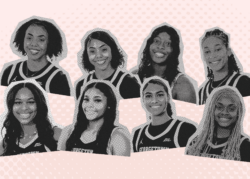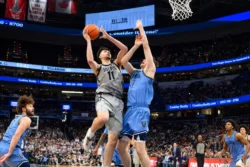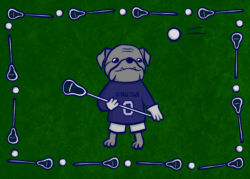Basketball, basketball, basketball. An entire month, dedicated to a single sport? Against all odds, I managed to find a non-basketball story of more than minor interest when I came across a few comments made by 49ers coach Mike Nolan on what has always been a pet peeve of mine: the NFL’s pass interference rule.
Nolan wants to see the NFL adopt a new pass interference rule that gives officials some leeway in handing out punishment. His plan would let officials decide if the call should result in a 15-yard penalty or, as the rule stands now, have the ball moved to the spot of the foul—a much harsher penalty.
Nolan compared the pass interference penalty to other, harsher infractions.
“You can maim someone, and it’s 15 yards,” he said in a March 19th interview with the Sacramento Bee. “You can end someone’s career, and it’s 15 yards. Pass interference—it’s not a reflection of the severity of the crime. It’s like getting the death penalty for going 75 mph in a 55 zone.”
While the comparison to the death penalty is a bit dramatic, Nolan’s frustration with what is widely perceived as an imbalanced rule is quite appropriate.
The pass interference penalty has too often had a disproportionate affect on the results of close games. A pass interference call could, theoretically, result in gains as large as the quarterback’s throwing range. Penalties that occur inside the end zone put the ball at the 1-yard line. A call like this can quickly change the outcome of a game—something no official should be able to do, particularly towards the end of a close one.
The negative effects of the rule are compounded by the rather subjective nature of a pass interference call. A borderline move from a defensive back, viewed from the right angle, could change the course of the entire game. And as the rules currently stand, a coach cannot use a red flag to challenge a pass interference ruling.
The reasoning behind this penalty is flawed: it assumes that, without interference, a reception would have occurred. There is some fairness to this line of thinking: while the referee can never know whether or not the receiver would have caught the ball, it is possible that the receiver could have made gains beyond the point of interference.
Again, however, this all rests on the assumption that the receiver would have been able to make the catch in the first place.
The nature of the rule provides a strong incentive for offensive coaches to call plays that simply try to draw penalties.
“You’ll see them drop back and throw it vertical,” Nolan told The San Francisco Bee. “They’ll overthrow the play; they just want the penalty.”
Pass interference, along with the controversial new interpretation of “roughing the passer” is making the game harder and harder for defensive players.
I understand that there are some who will note that Nolan, as a former defensive back himself, might be somewhat biased against a rule that clearly favors the offense. Others will point out that the 49ers’ recent signing of defensive-back Nate Clements, now the highest paid defensive player in the league, might also have something to do with Nolan’s comments.
However, as the coach pointed out himself, any change to the pass interference rule is unlikely to occur any time soon. According to ESPN.com, the NFL’s powerful competition committee recently discussed the pass interference proposal. The committee did not seem to favor any changes to the rule, making it likely that the proposal will not find much support among the full league membership later this month.





